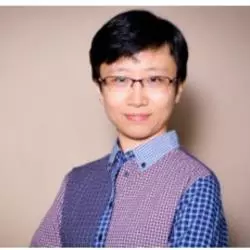Jing holds a PhD in Chemical and Biomedical Engineering. With her postdoctoral research into microbial fuel cells, (MFC’s) she is improving one of the most promising green techniques for electricity production and waste remediation. She designed and fabricated a graphene-based, hierarchically porous MFC anode by integrating nanotechnology and architectural engineering.
Current position:
Applications Scientist at Nanometrics Southeast Asia Pte Ltd. Singapore
Research focus:
Non-destructive optical testing, microbial fuel cell, biosensors
In 2014 Jing won the Green Talents award. The jury believed that her contribution to the knowledge base available on the bio-electrocatalytic process is extremely valuable to sustainable energy development. During her research stay at Max Planck Institute of Colloids and Interfaces under the supervision of Prof. Markus Antonietti and Dr. Tim Fellinger, she obtained unexpectedly promising results in her studies. The Green Talents program also helped Jing to boost her career and to obtain greater recognition in her academic field.
CV as submitted for the Green Talents award (2014):
NANYANG TECHNOLOGICAL UNIVERSITY, SINGAPORE
Research focus:
Clean and sustainable energy sources: the development and uses of microbial fuel cells
Jing Liu’s postdoctoral research into microbial fuel cells is advancing one of the most promising green techniques for electricity production and waste remediation.
The use of microbial fuel cells (MFCs) to decompose organic waste (such as sludge or sewage) and convert the chemical energy stored in the organic substrate into electricity is widely regarded as a promising new source of green energy. This is known as the bio-electrocatalytic process. As Jing explains, “the MFC anode uses microbes rather than noble metals as catalysts for the conversion of chemical energy into electricity”. This brings with it distinct advantages for sustainability: the mild conditions in which the process can take place require no external energy input and the self-regenerating nature of the microbes substantially reduces the cost of the catalyst (as opposed to the use of noble metals).
Jing is currently working on advancing the use of MFCs: “My current research focuses on improving the performance of MFCs and further exploring the fundamental insights of the bio-electricity production process”, she explains. One of the research possibilities Jing is most interested in is the combination of MFC with other emerging sustainable energy technologies, such as artificial photosynthesis. She is convinced that the MFC process is at a development stage from which it could profit enormously from interdisciplinary attentions. “For the next step”, she says, “it would be the right timing to systematically integrate these advanced techniques into a single system, which would give rise to a superior MFC system with a bright future”.
Jing’s previous research proves her record of successful experiments. She designed and fabricated a graphene-based, hierarchically porous MFC anode by integrating nanotechnology and architecture engineering. She also constructed a unique genetically engineered Escherichia coli strain that exhibits an unprecedentedly high metabolic activity towards glycerol.
The jury was impressed both by Jing’s past research successes and by her vision for future research projects. They believe that her contribution to the knowledge base available on the bio-electrocatalytic process is extremely valuable to furthering the cause of sustainable energy development.
